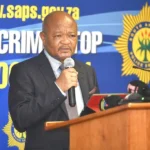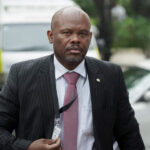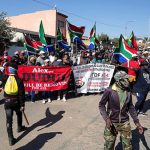
The Funeral Industry Reformed Association (Fira), an organisation representing funeral service providers, has raised concerns that the soldiers' bodies may be so badly decomposed that identification would only be possible through DNA analysis.
According to Fira chairperson Johan Rousseau, the circumstances surrounding the soldiers' deaths, coupled with the high temperatures in the DRC, would have accelerated decomposition.
"The normal circumstances would be [to have] sufficient resources because you have to prepare [the bodies]. If someone is killed in action, they do not die naturally. There need to be refrigeration facilities [to store the remains]. In this case, they were killed in action, so automatically the deceased are exposed to bodily fluids and all that, and with the extensive heat of the DRC, the bodies will decompose within a matter of a day." He added that the bereaved families would be met with a gruesome sight if they were even allowed to view the bodies.
However, SANDF spokesperson Siphiwe Dlamini has cautioned against further traumatising the families with unfounded statements. He questioned Fira's authority to pronounce on the state of the remains and demanded evidence to support their claims. "Goma has a hospital. The UN has a hospital. Where do they get the authority to comment on that?" Dlamini asked, insisting that there were hospitals and mortuaries in the areas where the soldiers were deployed.
It was reported that the M23 rebels, who are surrounding the SANDF bases around Goma and Sake, had initially blocked the repatriation efforts. The bodies were eventually transported from Goma, through Rwanda to Uganda, and then onwards to Tanzania, Malawi, and South Africa. The SA government had reportedly opposed the remains travelling through Rwanda, particularly Kigali, to avoid giving Rwandan President Paul Kagame a propaganda opportunity.
SANDF spokesperson Siphiwe Dlamini confirmed that standard pathology procedures would commence on Sunday, and it is anticipated that all necessary procedures will be completed by Tuesday, February 11th, 2025. Further updates will be duly communicated.
During the State of the Nation Address (SONA) held at Cape Town City Hall on Thursday, President Cyril Ramaphosa paid tribute to the soldiers and mentioned each by name.
The soldiers were part of the SANDF contingent deployed to the region as part of both the Southern African Development Community Mission in the Democratic Republic of the Congo (SAMIDRC) and the United Nations Organisation Stabilisation Mission in the Democratic Republic of the Congo (Monusco), undertaking peacekeeping missions in the region.
Dlamini said the soldiers displayed "extraordinary courage in their confrontation with the M23 rebels who had attacked their base".
Chief of the SANDF, General Rudzani Maphwanya, said the M23 rebel group launched a full-scale attack on Thursday 23 January, to take control of Sake and gain access to Goma, the provincial captain of eastern DRC. "Fierce fighting ensued, and our soldiers displayed extraordinary bravery and determination. They successfully halted the M23 advancement and pushed them back, preventing the rebels from achieving their objective."
The Minister of Defence and Military Veterans, Ms Angie Motshekga, the Deputy Ministers of Defence and Military Veterans, Maj Gen (ret) Bantu Holomisa and Mr Richard Hlophe, together with the Acting Secretary for Defence, Dr Thobekile Gamede and the Chief of the South African National Defence Force, General Rudzani Maphwanya send their heartfelt condolences to the families of the deceased and the entire defence family.
As the nation awaits the return of these brave soldiers, the conflicting reports regarding the condition of their remains add another layer of grief and uncertainty for their families. The SANDF has assured the public that it will provide accurate information as soon as it becomes available, while urging caution against spreading unsubstantiated claims.

Follow Us on Twitter









